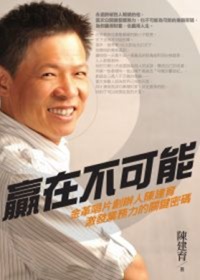The Fourth Industrial Revolution | 如何做好生意 - 2024年5月

The Fourth Industrial Revolution
工業4.0來襲,將對全球供需市場與勞動力市場帶來巨大衝擊
第一次工業革命,由機械力取代傳統勞力與動物力。
第二次工業革命,電力的運用,使得福特得以生產線量產汽車。
第三次工業革命,計算機促進了自動化大規模生產。
第四次工業革命將結合物聯網與雲端技術,在信息物理融合系統(Cyber-Physical System, CPS)的發展下,迎向更全面的轉變。
世界經濟論壇(World Economic Forum, WEF)創辦人與執行主席克勞斯.施瓦布(Klaus Schwab),自1971年創立WEF至今,年年召集各界政經領袖討論當前經濟領域的問題與對策。2016年於達沃斯(Davos)舉行的世界經濟論壇聚焦「第四次工業革命」,討論行動超級運算、人工智能機器人、無人駕駛車、腦神經技術革新、基因遺傳編輯、虛擬實境等新科技將帶來的影響與對應之道。
人類正面臨一場全新的科技革命,無論是工作還是生活中的改變皆以指數的速度在進行。它的規模、範圍與複雜度從未如此強大,衝擊所有產業、經濟體與政府。施瓦布詳細解釋驅動這場革命的關鍵科技,討論其對政府、商業、文明社會與個人的主要影響,並提出大膽的建議,設法妥善的駕馭科技並保障人類的整體利益。他強調人類必須藉由科技與社會共存的方式,擔負起共同的責任,才能確保我們有一個更好的未來。
World-renowned economist Klaus Schwab, Founder and Executive Chairman of the World Economic Forum, explains that we have an opportunity to shape the fourth industrial revolu-tion, which will fundamentally alter how we live and work. Schwab argues that this revolution is different in scale, scope and complexity from any that have come before. Characterized by a range of new technologies that are fusing the physical, digital and biological worlds, the developments are affecting all disciplines, economies, industries and governments, and even challenging ideas about what it means to be human. Artificial intelligence is already all around us, from supercomputers, drones and virtual assistants to 3D printing, DNA sequencing, smart thermostats, wear-able sensors and microchips smaller than a grain of sand. But this is just the beginning: nanomaterials 200 times stronger than steel and a million times thinner than a strand of hair and the first transplant of a 3D printed liver are already in development. Imagine "smart factories" in which global systems of manu-facturing are coordinated virtually, or implantable mobile phones made of biosynthetic materials. The fourth industrial revolution, says Schwab, is more significant, and its ramifications more profound, than in any prior period of human history. He outlines the key technologies driving this revolution and discusses the major impacts expected on government, business, civil society and individu-als. Schwab also offers bold ideas on how to harness these changes and shape a better future--one in which technology empowers people rather than replaces them; progress serves society rather than disrupts it; and in which innovators respect moral and ethical boundaries rather than cross them. We all have the opportunity to contribute to developing new frame-works that advance progress.
PROFESSOR KLAUS SCHWAB is Founder and Executive Chairman of the World Economic Forum, the International Organization for Public-Private Cooperation. In 1998, he created the Schwab Foun-dation for Social Entrepreneurship. Schwab holds doctorates in economics (summa cum laude) from the University of Fribourg and in engineering from the Swiss Federal Institute of Technology, and a Master in Public Administration from the Kennedy School of Government at Harvard University. He has received numerous international and national honors.
 Headspace冥想正念手冊
Headspace冥想正念手冊 讓可愛的錢自動滾進來:27歲財務自...
讓可愛的錢自動滾進來:27歲財務自... 麥克史東阻力訓練全書:美國國家肌力...
麥克史東阻力訓練全書:美國國家肌力... 給青春的第二條路:從中輟生到劇團創...
給青春的第二條路:從中輟生到劇團創... 迪奧的誕生:揭開品牌創辦人克里斯汀...
迪奧的誕生:揭開品牌創辦人克里斯汀... 大腦解鎖:史丹佛頂尖學者裘.波勒以...
大腦解鎖:史丹佛頂尖學者裘.波勒以... 復興航空創辦人,陳文寬的冒險歲月
復興航空創辦人,陳文寬的冒險歲月 AQ挫折復原力繪本:給孩子的3堂逆...
AQ挫折復原力繪本:給孩子的3堂逆... 無限賽局:翻轉思維框架,突破勝負盲...
無限賽局:翻轉思維框架,突破勝負盲... 贏在不可能:金革唱片創辦人陳建育激...
贏在不可能:金革唱片創辦人陳建育激...